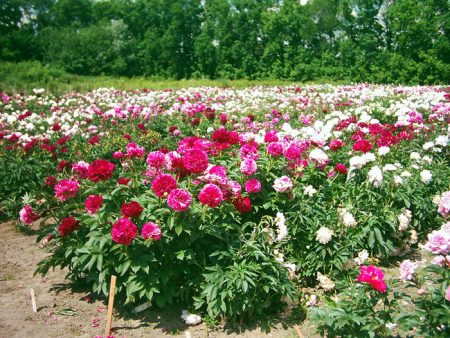 These plants have long and sovereignly settled in the soul and on the site of each grower. And no wonder - the lush, large bloom at the very beginning of summer, when there are still very few bright colors on the site, pleases everyone: the owners and guests, and the summer residents passing by. Peonies, planting and caring in the open field for them are not difficult, probably every gardener is the first experience in breeding flowers.
These plants have long and sovereignly settled in the soul and on the site of each grower. And no wonder - the lush, large bloom at the very beginning of summer, when there are still very few bright colors on the site, pleases everyone: the owners and guests, and the summer residents passing by. Peonies, planting and caring in the open field for them are not difficult, probably every gardener is the first experience in breeding flowers.
Breeding
Plants are very unpretentious and, subject to proper planting, can grow in one place up to 15 years. Peony propagation occurs by dividing the bush, starting from the age of three, with cuttings both stem and root, cuttings and seeds (varietal features in this case are not preserved). Pieces of root with several buds (at least two or three) have the best survival rate.
We advise you to read - Eremurus: outdoor planting and care
Peony planting step by step instructions
When the treasured spine with buds that have moved in growth is received, it is necessary to correctly place it on the site. This is best done near a house or high vegetation on the leeward side in a sunny place. Although light shading does not harm him either.
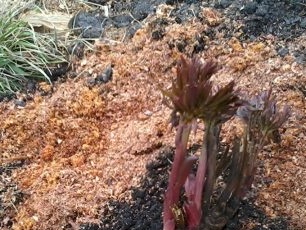
Step 1. Before planting a peony you need to dig a hole two shovel bayonets deep.

Step 2. Pour large gravel to the bottom as drainage, as the plants cannot stand water stagnation.
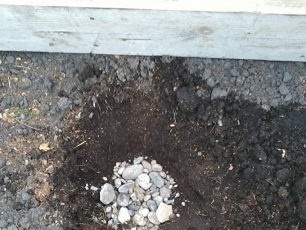
Step 3. Mix humus with one-to-one soil removed from the pit, add a liter jar of last year's sawdust or peat, a handful of complex mineral fertilizer and mix.
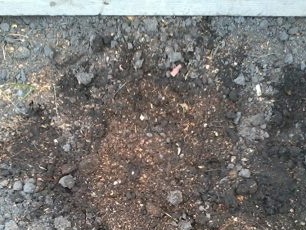
Step 4. Pour water.
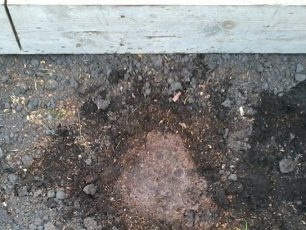
Step 5. Place the root with shoots or part of it with the kidneys in the pit and sprinkle it with earth so that the renewal buds remain above the soil surface.
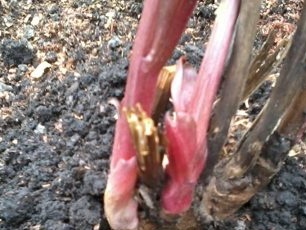
Step 6. Press the earth tightly around the bush with your hands.
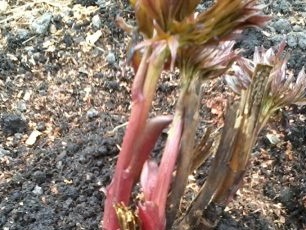
Step 7. Around the plant, make a groove for irrigation and fill it with water.
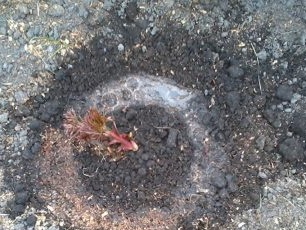
Step 8. Then the place of watering should be mulched. For this, last year's sawdust, peat, humus, last year's foliage of trees, chopped straw, needles, chopped bark, etc. can be used.
Attention! Fresh sawdust is never used in horticultural activities, since it strongly acidifies the soil. If there is a desire to scatter them along the paths between the beds, then you first need to mix with slaked lime (dust).
Step 9. When everything is ready, you only need to shake off the fallen sawdust from the leaves and wait for the first inflorescences.
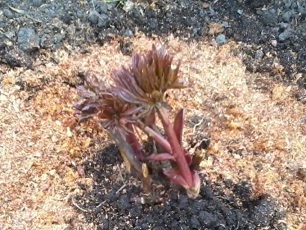
In the fall, when the foliage loses its decorativeness, peony pruning and preparation for winter are necessary. At the same time, stems 20 cm high remain above the soil surface.
So that the roots do not freeze in regions with cold winters, one or two buckets of humus are poured onto the plants. And in the spring it is neatly raked, trying not to break the buds of renewal that have moved in growth.
During the growing season, fertilizing the peony with complex mineral fertilizers and ash is necessary: before flowering - nitrogen, potassium, phosphorus; after it - potassium, phosphorus.
Attention! Organics are not used because it causes fungal diseases. To prevent them, you can spray with Bordeaux liquid.
Varieties
Of course, terry varieties of peonies are most loved by flower growers for their "frivolous disheveledness" of the petals. A rich palette of colors: from white to rich burgundy, from delicate cream to dark caramel leaves no one indifferent.
The following varieties of peonies are the most popular:
• Red Charm.A ball with a diameter of 25 cm of pure red color on a strong elastic stem with a light aroma.
• Raspberry Sunday. Pink "shaggy" inflorescence with a creamy center and the scent of roses.
• Munglow. White foam of flashes of petals with a yellow center and a pronounced aroma.
• Varenka. Pink balls with a light aroma worthy of harsh winters.
Also find out everything about planting peonies in the fall and caring for them in the open ground.

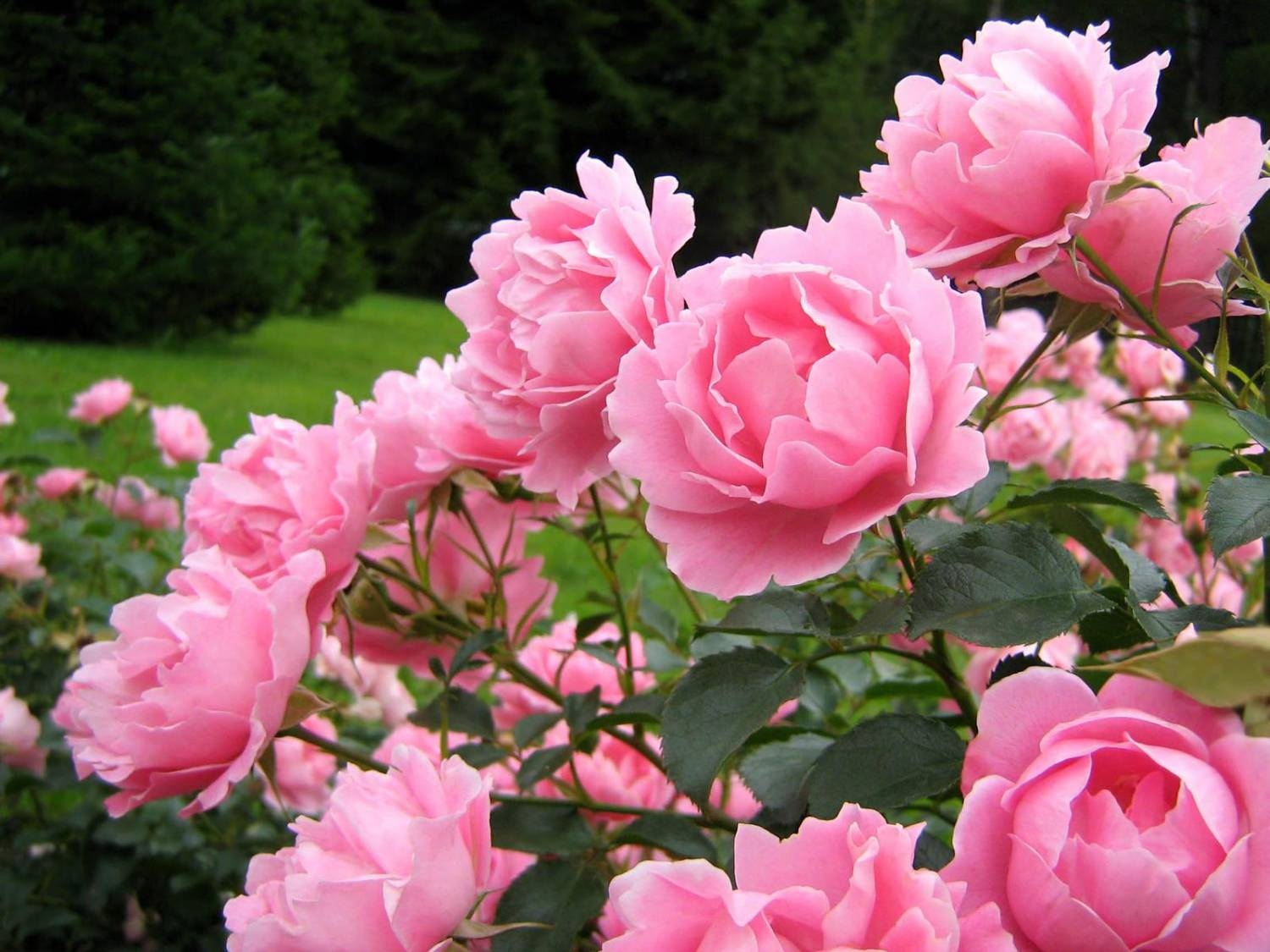
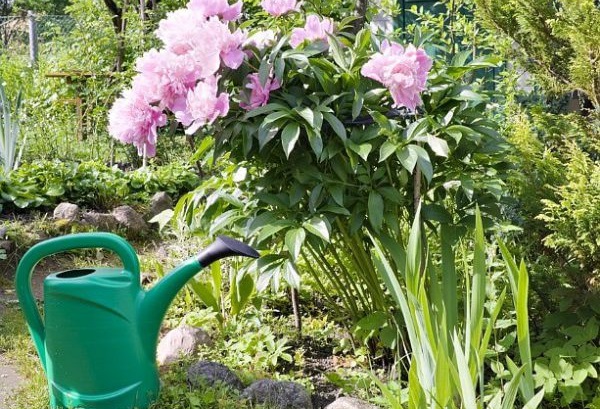
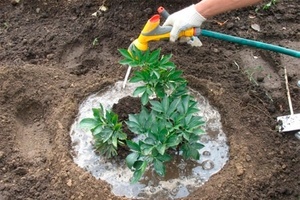
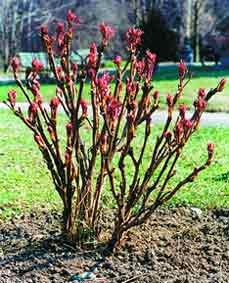 Pruning peonies in the suburbs for the winter
Pruning peonies in the suburbs for the winter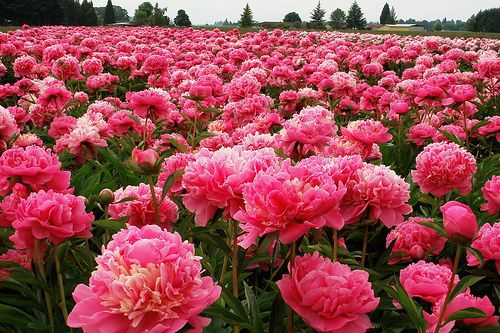 How to transplant peonies so that they bloom next year
How to transplant peonies so that they bloom next year How to transplant peonies in the fall to a new place
How to transplant peonies in the fall to a new place